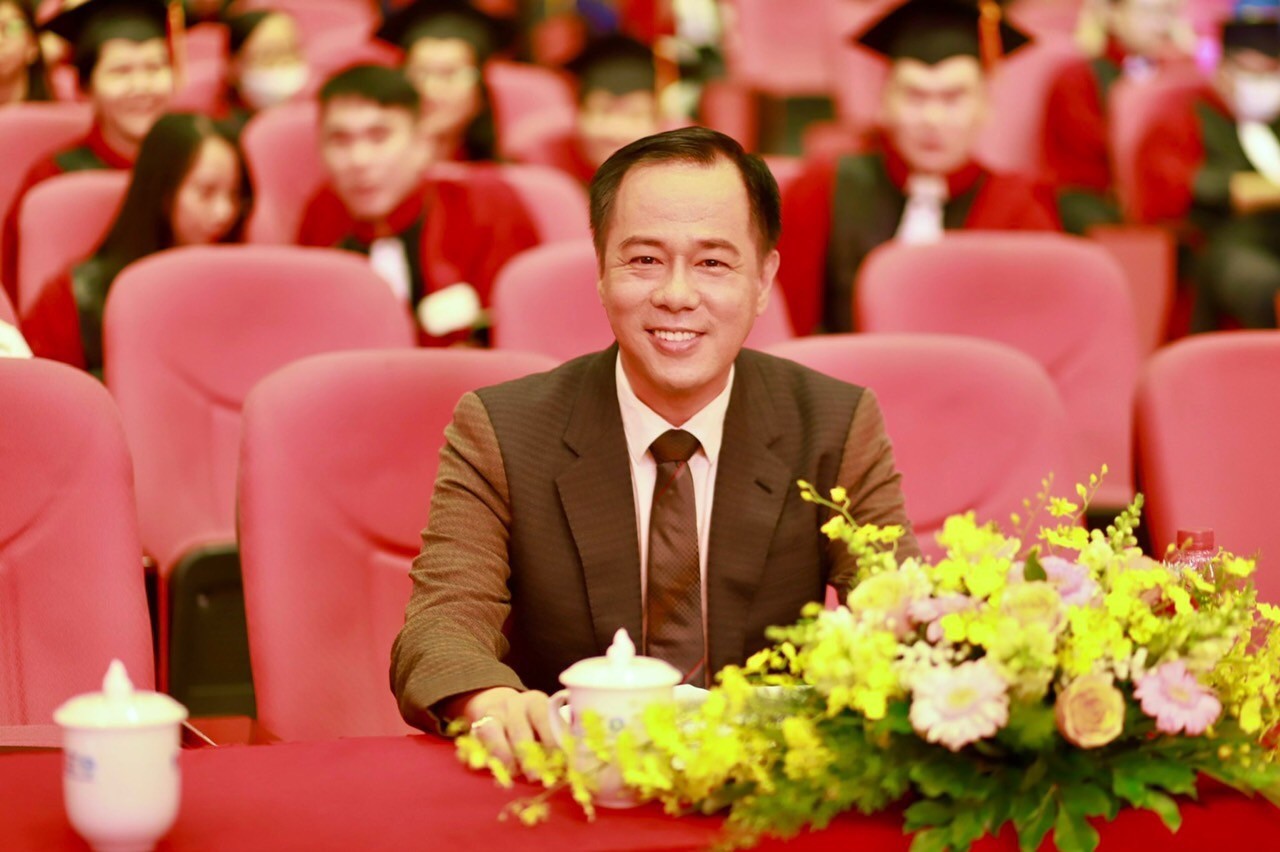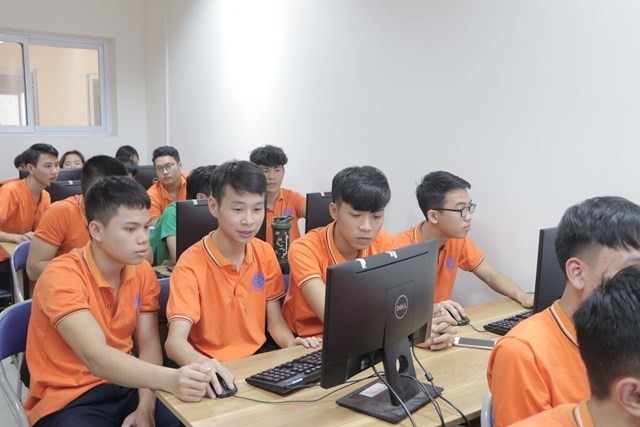
Young workers open the door to enter 'playing field' of globalization
Latest
 |
| Professor Huynh Van Son, Rector of Ho Chi Minh City University of Education. (Photo: WVR/Courtersy) |
In the context of the profound impact of digital technology on production methods and workers, Professor Son said that young people have to abtain many new skills and highly specialized knowledge in the digital age as many jobs will be taken up by robots and certain job will be disappered in the future.
Instead of thinking of career as a single specific craft, the workers need to think about multi-skills, interdisciplinary skills and related qualities such as independence, flexibility and adaptability. Therefore, it is necessary to focus on what makes young people unique, focusing on developing key aspects of human intelligence, most notably the intelligent thinking, emotional intelligence, mobility, intuition…
When production methods have changed, workers need to be able to adapt to the surrounding changes and evolving context. At the same time, they need to train themselves with skills related to digital transformation and application of artificial intelligence in work and life. It is equally important to be trained with social intelligence, especially the interactions with others people, with the community.
To become the adequate workers in the fourth industrial revolution, Prof. Son suggested that young people need to have a good command of foreign languages, master soft skills and the ability to apply information technology as well as artificial intelligence to open the "door" to enter the "playing field" of globalization.
These skills could be analyzed as follows:
Foreign language ability: In the era of information technology boom, the current rapid economic growth in Vietnam as well as its integration with the outside world, learning foreign languages has become a must for today's youth.
Foreign language ability not only allows workers to have many job opportunities but also helps them to gaining more mankind cultural knowledge, making an important contribution for Vietnam’s integration with the world. It is necessary to learn the skill and turn it into a real ability, especially learning and using foreign languages to adapt to technology and global communication.
Mastering soft skills: To be able to integrate and succeed in the 4.0 industrial era, in addition to professional qualifications, workers also need other essential skills.
Apart from having good command of English, or other foreign languages, workers also need to have critical thinking, creativity and communication skills, as well as other skills that help people work together, endure the pressure of working professionally, working in multinational environment and working online.
Application of information technology: Not only IT workers need to learn this skill, but all young workers should immediately learn soft skills related to STEM (science, technology, engineering and math), especially information technology, if they do not want to become a redundant part in the 4.0 industrial era which requires the applying IT in an authentic and effective way.
The application of artificial intelligence must also become a real possibility by understanding the power and value of AI, exploiting the strengths of AI to ensure efficiency and interactivity for making machines and technology to serve people.
With regard to the comparision between Vietnamese workers and other South East Asian ones, Prof. Son pointed out that Vietnamese workers are abundant and younger in comparision with other countries in Southeast Asia. This is a great favorable resource for the socio-economic development of the country. In general, it can be seen that Vietnamese workers have had a good working attitude and made a lot of efforts, especially with creative activities, in doing their jobs.
 |
| Young workers open the door to enter “playing field” of globalization. (Photo: WVR) |
However, we should also acknowledge the assessments of the multinational organizations that the quality of human resources of Vietnam is still not high, the structure of labour forces in industries and working fields is still not good. The high professional expertism is still limited.
Moreover, the labour productivity of Vietnamese people is still low compared to other countries in the region such as Singapore, Malaysia, Philippines and needed to improve. Vietnam has many experts, however, many of them are working abroad, scattering in many countries around the world. In the era of flat world, the mobility makes the expert resources unstable, although we have the strategies to attract and to use talented people.
We should also acknowledge that there are industries which have very good workforce, but there are industries which don’t have enough human resources. Vietnamese human resources encounter a number of limitations which need to overcome in the 4.0 industrial era.
To deal with the limitations in the labour forces, Prof. Son made a number of policy recommendations, such as following:
First of all, it is necessary to focus on vocational training to acquire highly skilled human resources and specialized expertism to meet the innovative requirements of the 4.0 industrial era.
Furthermore, promoting international cooperation in training and vocational training through exchange activities is also needed. At the same time, it is necessary to organize seminars with countries which have advanced and successful universities in the region and in the world to raise the expertism level of Vietnamese workers.
In particular, we should continue the reform and renovate education through training in universities, colleges and vocational schools. Especially, theory must go in tardem with practice at enterprises and workplaces to create opportunities for young human resources to develop their skills and work experience.
Educational institutions and training facilities need to adjust and update training programs, training contents, training methods and equipment for effective teaching, enhancing practical knowledge so that the workers to be relevant with integration process in the region and in the world.
It is also very important to raise awareness of Vietnamese workers to work professionally, think and maintain appropriate attitude and commit to action, change the way of thinking and have positive attitute about fair and competitive labour and implement policies to ensure fairness in labour, encouraging efficient, fair and civilized labour, among others.
Concerning the engagement of the state, schools and businesses in the policy of respecting talents, Prof. Son made some practical suggessions, such as:
The policy of respecting talents of the country should be in line with the guidance of the Party and State and stems from the actual situation and be constantly adjusted and innovated to ensure effectiveness and adaptability.
To do this, from the perspective of stimulating employees, it is necessary to pay salaries for talented workers based on work performance, regularly adjust and ensure competition betwen the private and the state sector, schools, and businesses.
The appointment of titles, positions for the workders, and the provision with conditions for promotion in the workplace is not only based on seniority or age, but also on the work performance. It is also necessary to take care of mental health and continuously encourage talented employees for their achievements.
In addition, the policy of creating a good working environment must ensure the nurturing, protection and development of talents. Talented people need to be assigned tasks commensurate with their talents, be respected, recognized and honoured for their contributions. All need to be specific and ensure to stimulate both the extrinsic and internal motives of the workers.
It is also necessary to promote policies to attract talents who are overseas Vietnamese, returned international students, to serve the country in many different, flexible forms such as working full-time or for a certain period of time in the country, living abroad but participating in consulting activities. Especially, it is necessary to refrain from application of mandatory or too strict regulations on meetings or attendance which could cause a disruption of their work.
Regarding to the education's role to enhance the ability, “to give the wings for the workers”, Prof. Son stressed that the role of the education sector is not simply to impart knowledge, but also to help workers equip themselves with suitable skills for global integration. Education is geared towards holistic personal development. Workers not only learn to get high scores and pass exams, but also have the qualities and capabilities of 21st century citizens, especially qualities and capabilities to work in 4.0 industrial revolution.
The education sector has been changing, aiming to contribute to employees to ensure their professional work, ability to self-employment, innovation and creativity. And the most important thing is to properly train the workers to meet work standards and adapting with the practice of global working skills.
However, the important truth is that "the wings" are only effective if the workers have the wholehearted determination to develop themselves and take non-stop efforts to challenge themselves in the unpredictable labour market.













